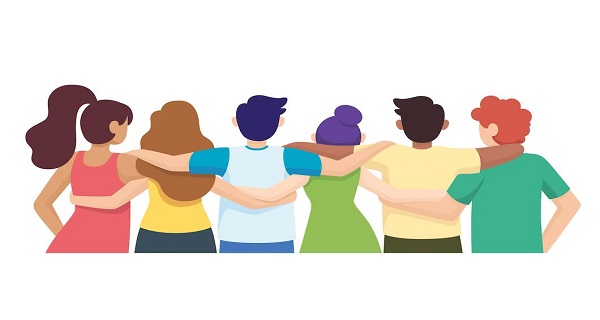The Danger of Co-Dependency in Romantic Relationships: A Cautionary Tale
-
Table of Contents
- Introduction
- The Warning Signs of Co-Dependency in Romantic Relationships
- How to Recognize and Avoid Co-Dependency in Your Relationship
- The Impact of Co-Dependency on Mental Health and Well-Being
- The Role of Communication in Avoiding Co-Dependency in Relationships
- The Benefits of Healthy Boundaries in Avoiding Co-Dependency in Relationships
- Conclusion
“Love shouldn’t be a one-way street: Recognize the Dangers of Co-Dependency in Romantic Relationships.”
Introduction
The Danger of Co-Dependency in Romantic Relationships: A Cautionary Tale is a cautionary tale about the dangers of co-dependency in romantic relationships. Co-dependency is a type of relationship in which one partner relies heavily on the other for emotional and physical support. This type of relationship can be damaging to both partners, as it can lead to feelings of insecurity, possessiveness, and even emotional abuse. This article will explore the dangers of co-dependency in romantic relationships and provide advice on how to avoid it. It will also discuss the signs of co-dependency and how to recognize it in a relationship. Finally, it will provide tips on how to break free from a co-dependent relationship and move on to a healthier one.
The Warning Signs of Co-Dependency in Romantic Relationships
When it comes to romantic relationships, it’s important to be aware of the warning signs of co-dependency. Co-dependency can be damaging to both partners and can lead to an unhealthy relationship dynamic. Here are some warning signs to look out for:
1. You feel like you need your partner to be happy.
If you feel like you can’t be happy without your partner, this could be a sign of co-dependency. It’s important to be able to find joy and fulfillment in your own life, independent of your partner.
2. You feel like you need to take care of your partner.
If you feel like you need to take care of your partner in order for them to be happy, this could be a sign of co-dependency. Everyone needs to be able to take care of themselves and be responsible for their own happiness.
3. You feel like you need to be with your partner all the time.
If you feel like you need to be with your partner all the time in order to be happy, this could be a sign of co-dependency. It’s important to have your own life and interests outside of the relationship.
4. You feel like you can’t make decisions without your partner.
If you feel like you can’t make decisions without your partner’s approval, this could be a sign of co-dependency. Everyone needs to be able to make their own decisions and be responsible for their own actions.
If you recognize any of these warning signs in your relationship, it’s important to take steps to address them. Talk to your partner about your concerns and work together to create a healthier relationship dynamic.
How to Recognize and Avoid Co-Dependency in Your Relationship

Are you in a relationship where you feel like you’re constantly giving and not getting anything in return? Do you feel like you’re constantly trying to please your partner, even if it means sacrificing your own needs and wants? If so, you may be in a co-dependent relationship.
Co-dependency is a type of relationship where one person relies heavily on the other for emotional and physical support. It can be damaging to both parties involved, as it can lead to feelings of resentment, guilt, and low self-esteem.
If you think you may be in a co-dependent relationship, here are some tips to help you recognize and avoid it:
1. Set boundaries. It’s important to establish boundaries in any relationship, but especially in a co-dependent one. Make sure you’re both clear on what you’re comfortable with and what you’re not.
2. Communicate openly. Communication is key in any relationship, but it’s especially important in a co-dependent one. Make sure you’re both honest and open about your feelings and needs.
3. Take time for yourself. It’s important to make time for yourself and your own interests. Don’t forget to take care of yourself and do things that make you happy.
4. Seek help. If you’re struggling to break out of a co-dependent relationship, don’t be afraid to seek help from a professional. A therapist can help you work through your issues and find healthier ways to interact with your partner.
Recognizing and avoiding co-dependency in your relationship can be difficult, but it’s possible. With a little effort and understanding, you can create a healthier, more balanced relationship.
The Impact of Co-Dependency on Mental Health and Well-Being
Co-dependency can have a significant impact on mental health and well-being. It can be a difficult and complex issue to navigate, but understanding the signs and symptoms of co-dependency can help you take steps to improve your mental health and well-being.
Co-dependency is a pattern of behavior in which one person relies on another for emotional or physical support. It can be a difficult issue to recognize, as it often involves a deep emotional connection between two people. This connection can be beneficial in some ways, but it can also be damaging if it becomes unhealthy.
When co-dependency becomes unhealthy, it can lead to feelings of insecurity, low self-esteem, and a lack of autonomy. It can also lead to feelings of guilt, shame, and resentment. These feelings can have a negative impact on mental health and well-being.
If you think you may be in a co-dependent relationship, it’s important to take steps to address the issue. This can include talking to a therapist or counselor, setting boundaries, and learning to be more independent. It’s also important to practice self-care and to focus on your own needs and wants.
It’s also important to remember that co-dependency is not a sign of weakness. It’s a sign that you need help and support. Seeking help is a sign of strength, and it can be the first step towards improving your mental health and well-being.
The Role of Communication in Avoiding Co-Dependency in Relationships
Communication is essential in any relationship, but it is especially important in avoiding co-dependency. Co-dependency is a type of relationship in which one person relies on the other for emotional and physical support, often to the point of neglecting their own needs. It can be damaging to both parties involved, as it can lead to feelings of resentment and insecurity.
The key to avoiding co-dependency is to ensure that both parties in the relationship are able to communicate openly and honestly about their needs and feelings. This means that each person should feel comfortable expressing their thoughts and feelings without fear of judgement or criticism. It is also important to be able to listen to each other without trying to fix the other person’s problems.
It is also important to be able to set boundaries in the relationship. This means that each person should be able to say “no” when they feel uncomfortable or overwhelmed. This can help to prevent one person from taking on too much responsibility or feeling like they have to do everything for the other person.
Finally, it is important to be able to recognize when one person is becoming too dependent on the other. If one person is constantly relying on the other for emotional and physical support, it is important to talk about it and find a way to balance the relationship.
Communication is essential in any relationship, but it is especially important in avoiding co-dependency. By being able to communicate openly and honestly, setting boundaries, and recognizing when one person is becoming too dependent, it is possible to create a healthy and balanced relationship.
The Benefits of Healthy Boundaries in Avoiding Co-Dependency in Relationships
Healthy boundaries are essential for avoiding co-dependency in relationships. When we have healthy boundaries, we are able to maintain our sense of self and our autonomy, even when we are in a relationship. This allows us to be in a relationship without sacrificing our own needs and wants.
Having healthy boundaries helps us to be clear about what we are willing to give and receive in a relationship. We can set limits on how much we are willing to give and receive, and we can communicate these limits to our partner. This helps us to avoid feeling taken advantage of or feeling like we are giving too much.
Healthy boundaries also help us to be honest with ourselves and our partner about our needs and wants. We can be honest about what we need from the relationship and what we are willing to give. This helps us to avoid feeling resentful or taken for granted.
Healthy boundaries also help us to be honest about our feelings and emotions. We can be honest about how we are feeling and what we need from our partner. This helps us to avoid feeling like we are not being heard or understood.
Finally, healthy boundaries help us to be honest about our expectations. We can be honest about what we expect from our partner and what we are willing to give. This helps us to avoid feeling like we are not getting what we need from the relationship.
Healthy boundaries are essential for avoiding co-dependency in relationships. They help us to maintain our sense of self and our autonomy, to be honest about our needs and wants, to be honest about our feelings and emotions, and to be honest about our expectations. With healthy boundaries, we can be in a relationship without sacrificing our own needs and wants.
Conclusion
The Danger of Co-Dependency in Romantic Relationships is a cautionary tale that should be taken seriously. Co-dependency can be a destructive force in relationships, leading to feelings of insecurity, jealousy, and resentment. It can also lead to a lack of trust and communication, which can be damaging to the relationship. It is important to recognize the signs of co-dependency and take steps to address it before it becomes a problem. By understanding the risks of co-dependency and taking steps to prevent it, couples can create healthier, more fulfilling relationships.
Related Posts
-
 The Virtue of Patience in Building Strong and Lasting Relationships
No Comments | Feb 25, 2023
The Virtue of Patience in Building Strong and Lasting Relationships
No Comments | Feb 25, 2023 -
 The Beauty of Diversity: A Morality Story of Inclusion and Acceptance
No Comments | Feb 25, 2023
The Beauty of Diversity: A Morality Story of Inclusion and Acceptance
No Comments | Feb 25, 2023 -
 The Consequences of Betrayal in Relationships: A Morality Story
No Comments | Feb 25, 2023
The Consequences of Betrayal in Relationships: A Morality Story
No Comments | Feb 25, 2023 -
 The Virtue of Gratitude in Nurturing Healthy and Positive Relationships
No Comments | Feb 25, 2023
The Virtue of Gratitude in Nurturing Healthy and Positive Relationships
No Comments | Feb 25, 2023
